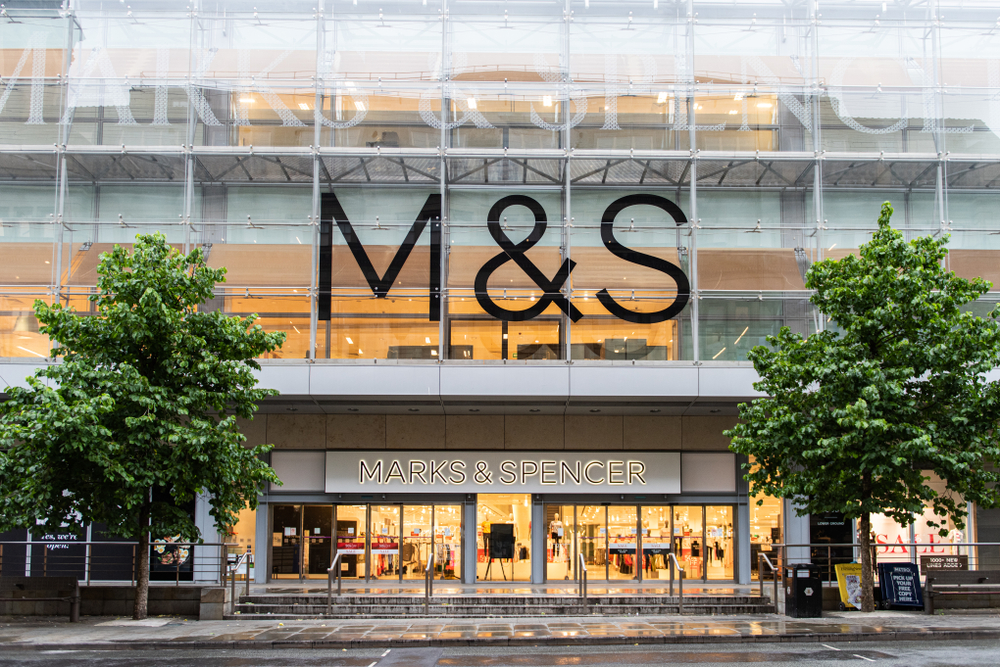Debenhams has issued a profits warning as the first half of its financial year draws to a close, and as it works to find its place in a retail environment where department store sales are moving online faster than other sectors.
The department store said it could no longer stand by its previous statement that it was “on track to deliver current year profits in line with market expectations.” This, it said, was no longer valid and it now plans to provide a further update when it issues its half-year results.
The update came as the first half of Debenhams’ financial year ended on March 2. Debenhams said that during that period overall group gross transaction volume – the sales measure that Debenhams uses – had fallen by 5.4%, or by 5.3% on a like-for-like basis that strips out the effect of store openings and closures. Sales at UK stores were down by 6%, and international sales by 2.3% Online provided a single source of comfort, with digital sales up by 2% over the period.
The retailer said that its sales decline had moderated in the second quarter (GTV -5%), compared to the first quarter (-5.6%).
Debenhams is looking for ways to ensure that it remains relevant to shoppers at a time when department store sales are moving online faster than those in other sectors, according to ONS figures. Figures from Barclaycard today suggest that department stores as a group are being hit as consumers slow their spending amid Brexit uncertainty, with spending in this category, as measured by Barclaycard, down by 5.5% on last year.
The retailer is going through a transformation programme that puts the emphasis on social shopping. It aims to bring shoppers into stores for social events, while connecting them online through mobile and through online communities including the Debenhams Beauty Club. However, that transformation will also see stores close.
Debenhams chief executive Sergio Bucher said today: “We are making good progress with our stakeholder discussions to put the business on a firm footing for the future. We still expect that this process will lead to around 50 stores closing in the medium term.
“Our priority is to secure the best outcome for the business and all our stakeholders, whilst minimising the number of store closures and job losses. To do this, as I have said before, we will need the support of both landlords and local authorities to address our rents, rates and lease commitments. I would like to thank our staff – and all our stakeholders – for their continued support through this period, as we work to deliver a sustainable future for the company.”
The retailer also said that its programme aimed at saving £80m a year in costs was on track, and that it expected to see the first ranges resulting from its sourcing partnership with Li & Fund in stores in the current season.
Industry reaction
Commenting, Paul Hickman, analyst at Edison Investment Research, said:“Debenhams has again lowered expectations following a continued negative trading record. Observers will be forgiven for disagreeing that gross transaction value of sales down 5.0% in Q2 compared with 5.6% in Q1 represents much of a moderation in headwinds.
“However, it isn’t the desperate trading picture that management says is affecting profits, but the ‘process’ – meaning the execution of the £80m cost saving programme, the transition to the sourcing partnership with Li & Fung, and balance sheet restructuring measures including store closures. CEO Sergio Bucher’s call to landlords and local authorities ‘to address our rents, rates and lease commitments’ reads suspiciously like an appeal to charity.”
Catherine Shuttleworth, chief executive and founder of shopper marketing agency Savvy said: “The news that Debenhams are issuing a profit warning isn’t a big shock. The fact that its online business is not performing, still, is a bigger concern and continual under trading seems to be the issue. The future of the business is increasingly unclear and for Debenhams employees and suppliers these are very concerning times.”
Sofie Willmott, senior retail analyst at data and analytics company GlobalData, said:
“The online channel performed much better than stores, however minor growth when digital accounts for c22% of Debenhams’ revenue was not enough to have a significant impact on top line performance. Unlike close competitor Next that has long focused on its online division, aided by its background as a catalogue retailer, and is now able to rely on ecommerce to prop up sales, Debenhams does not have the same solid ecommerce grounding that is much needed to protect sales as spend shifts online.
“Given the troubles at House of Fraser across the period with stores looking empty and unloved and its website proposition being dialled back, Debenhams should have been able to steal share. The predicted poor performance across the two players, alongside John Lewis’ FY results which are expected to be muted when they are announced on Thursday, is evidence of the ongoing struggles of department store retailers. Although changes are being made to product ranges and the experiential element is a key focus for the retailer, it is questionable whether this will be enough to draw consumers back into Debenhams.’’
Image courtesy of Debenhams








